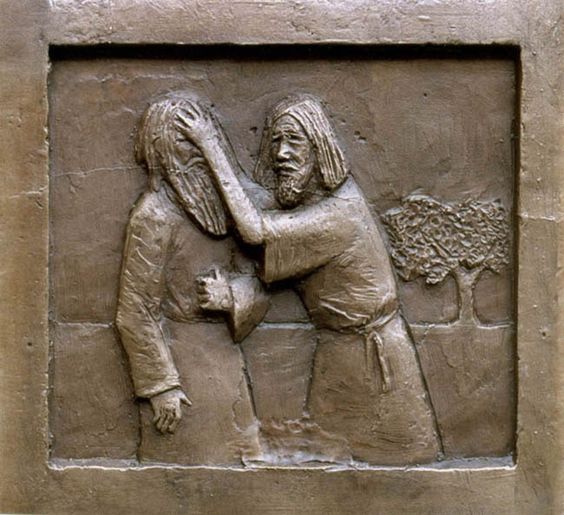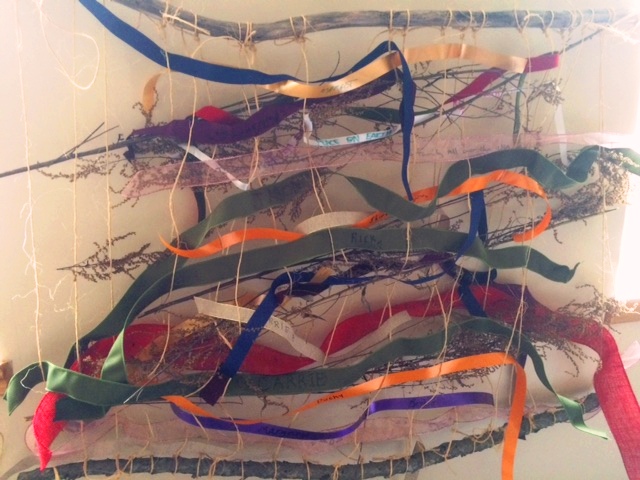
I attend a church that follows a lectionary for the scriptural theme of each Sunday. The lectionary provides a framework for daily and weekly bible stories, music, prayers and preaching. Typically lectionaries revolve around a three year cycle, meaning that every three years the same scriptures come around again. So, in my years in a lectionary church I have heard the story of Bartimaeus and Jesus at least once every three years. The story has become familiar to me, the story of “Blind Bartimaeus.”
This lectionary cycle, however, it was as if I was hearing the story for the first time! I noticed some elements in the story that were fresh and engaging. To me, as a person keenly aware of disability advocacy and faith-community inclusion for people with disabilities, I heard a story that models the way. (Jesus has a way of doing that, modeling the way.)
- “Blind Bartimaeus” is not the moniker that Jesus used to identify this man. It is the label that others have stuck on him, others who did not understand the harm that may happen when a person is identified by their disability instead of being identified first as a person. The interaction between Bartimaeus and Jesus, as described by Mark, is centered on the person of Bartimaeus, not his disability. Jesus modeled People First Language and ideology before it existed!
- Jesus noticed a man who lived on the fringes of his society; Bartimaeus was a person who was culturally, socially, and economically marginalized. By reason of his disability he was forbidden to participate in the daily life of his community, his hometown of Jericho. He was a person to whom it was acceptable for others to say, “shut up!” (Mark 10:38: Many sternly ordered him to be quiet.) Jesus noticed a person that others rejected; Jesus, again, modeled the way.
- Jesus did not impose his own opinion and plan on a person with a disability. He did not make an assumption about why Bartimaeus was calling out to him. Jesus asked Bartimaeus what he wanted, then he listened and honored the answer. By not assuming that he knew what another person wanted, Jesus models for us how to unprejudiciously listen to other people. Jesus was person-centered with his interaction with Bartimaeus. (In a nut shell, person-centered means putting aside personal agendas and plans for the sake of focusing on the desires and needs of another person. It is a term used in service and life planning with people who have disabilities).
- Jesus modeled the way of inclusive communities by not turning Bartimaeus away when he chose to become a follower of Jesus. I realize that I am making an assumption about Bartimaeus with this point, but I believe that there is sufficient information about the first century mid-eastern region where this story occurred to make this assumption: As a marginalized, disabled beggar who lived on the margins of his community, Bartimaeus did not have observable education, talent and skills to offer to the ministry of Jesus and his band of followers. But that did not matter to Jesus as he seemed to delight in including the misfits, tax collectors, zealots and others of questionable reputation to be his followers. Bartimaeus was included, just as was everyone else.
Jesus always models the way!
Mark 10:46-52 (NRSV) 46 They came to Jericho. As he and his disciples and a large crowd were leaving Jericho, Bartimaeus son of Timaeus, a blind beggar, was sitting by the roadside. 47 When he heard that it was Jesus of Nazareth, he began to shout out and say, “Jesus, Son of David, have mercy on me!” 48 Many sternly ordered him to be quiet, but he cried out even more loudly, “Son of David, have mercy on me!” 49 Jesus stood still and said, “Call him here.” And they called the blind man, saying to him, “Take heart; get up, he is calling you.” 50 So throwing off his cloak, he sprang up and came to Jesus. 51 Then Jesus said to him, “What do you want me to do for you?” The blind man said to him, “My teacher, let me see again.” 52 Jesus said to him, “Go; your faith has made you well.” Immediately he regained his sight and followed him on the way.
Note regarding image- I found this using a Bing search with the key words “Bartimaeus,” “healing.” It seems to have originated from the University of Michigan, but no citations were attached to it. If this image is yours or you know any details about where it originated from please contact this author and it will be removed or proper citation added.
